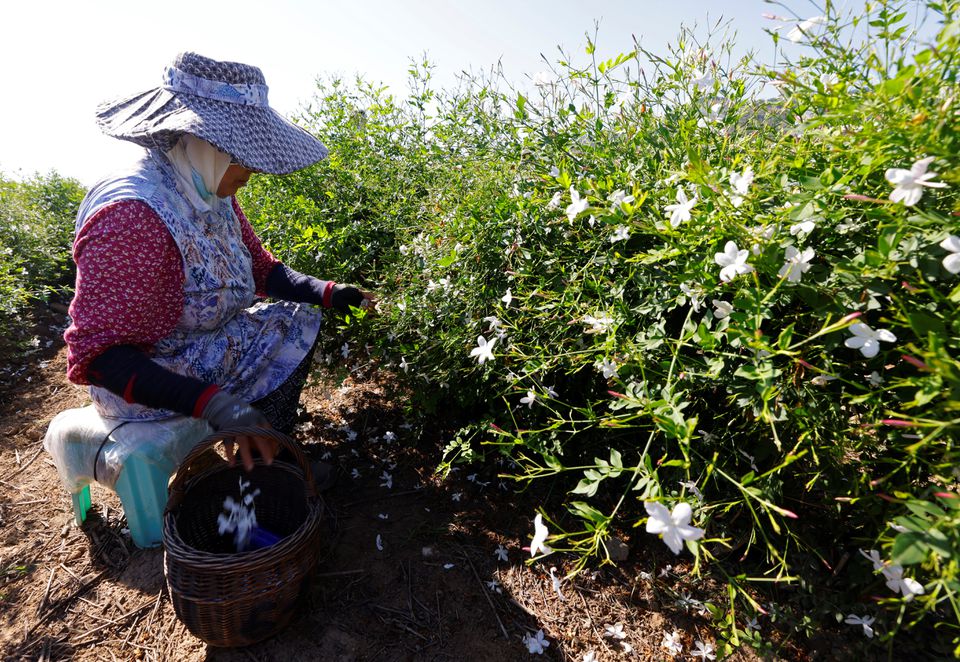Chanel buys up more jasmine fields to safeguard famous No. 5
- By Reuters -
- Aug 30, 2021

PEGOMAS, France, Aug 27 (Reuters) – Wary of disappearing flower crops used in its best-selling perfumes, fashion and beauty firm Chanel has bought up more land in southern France to secure its supplies of jasmine and other varieties, harvested by hand in a delicate annual ritual.
The luxury group said it had bought up an extra 10 hectares (100,000 square metres) of land, adding to the 20 hectares it already exploits in partnership with a local family near the town of Grasse, known for its surrounding flower fields.

On a sunny late August morning, before the heat reached a peak in nearby Pegomas, dozens of workers were busy with this year’s jasmine harvest, the key ingredient for Chanel’s 100-year-old No.5 perfume, created by late designer Coco Chanel.
Chanel struck a deal with the Mul family in the late 1980s to anchor its production of five flowers in the region. Some local producers began selling their land at the time, drawn in part by property deals in the region close to Nice and the French Riviera.

“There was a time when there was a threat because jasmine production was starting to move to other countries,” said Olivier Polge, who followed in his father’s footsteps to become Chanel’s head perfumer in 2013.
The jasmine grown in Grasse has a specific scent. The region became a flower and fragrance hub in the 17th century when local leather tanners began to perfume their wares.

Fabrice Bianchi, who runs the Mul family’s production, said operations were not overly affected by the COVID-19 pandemic, with pickers able to work outside. The virus causes some sufferers to lose their sense of taste and smell – a particular problem for perfumers, known as “noses” in the business.
“For sure, it was a pretty peculiar year,” Polge told Reuters. “But in many ways, it was the same for me as for everyone, even though I’m a nose – we all tried not to get it.”
